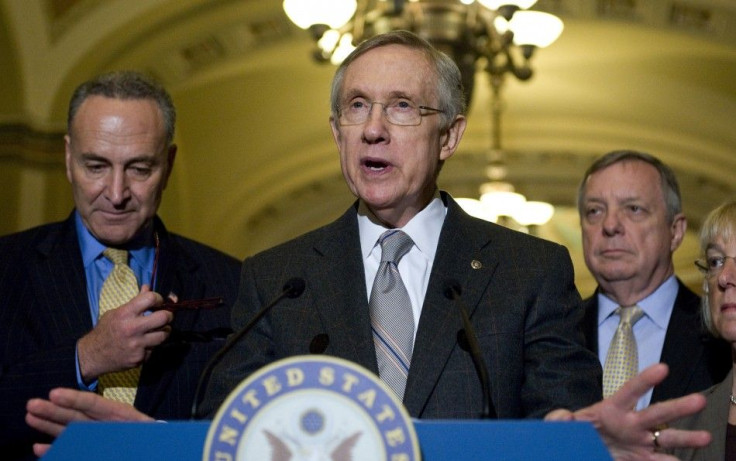The Debt Deal: Time to Fix America's Real Problem
Column

The debt deal cleared a hurdle, but now it's time for Washington to address the real problem. We have an addiction to federal spending in America and a lack of common sense when it comes to taxation and what to do about it.
We need a complete re-start, addressing the budget in the tax code in a major overhaul so that America, the world's largest and most important economy, remains relevant and financially vibrant for years to come.
As it stands now, Congress just agreed to cut spending over the next 10 years by roughly $2.5 trillion. That's a start, but not much of one.
Reality in the form of reports from the Congressional Budget Office tells us that the U.S. deficit will grow over the next 10 years by roughly $6 trillion.
Basic math subtracting $2.5 billion from $6 billion reveals that America's debt will likely grow under the current scenario by another $3.5 trillion. That amounts to a 25 percent increase from America's current debt level of more than $14 trillion.
Already, just days after the debt ceiling was raised, U.S. debt surpassed 100 percent of gross domestic product, according to Treasury figures.
Public debt is now $14.58 trillion, just above the size of America's economy in 2010, at $14.53 trillion. The last time debt topped the size of the U.S. annual economy was in 1947, during World War II.
But war spending was responsible for the problem more than six decades ago. We've certainly been involved in a domestic and global economic war in recent years, after the Great Recession, but the way out of a debt problem -- the instigator of economic troubles -- is not through another debt problem.
The solution for America's debt woes needs a broader scope than Washington leaders working in a sort of bipartisan effort have tackled thus far. America is now a mature economic nation, with a century of industrial growth in its rear view mirror. This nation cannot afford to to continue waffling in political gridlock involving budget nits and picks.
America's financial system needs a complete overhaul. The first place to start is with the tax code.
Simplify it. Clean it up.
Put every working American on the same rate -- say 15 percent. A seat on the subway shouldn't be like a seat an on airplane, where you never know what the person around you is paying.
Everybody should pay the same rate, and thus the rate for most would be less. This is America, after all, where fair should be fair.
Nobody earning well who's getting clobbered so clobbered with a family of four and a mortgage while earning $200,000 will feel like they are getting the shaft, and nobody working hard in the middle class will feel like the wealthy are getting off with a bucket full of loopholes.
Everybody working pays.
Eliminate the tax code jungle, and America's financial mess will become much clearer.
Also, it's time for Washington to honestly address long-term budget problems that threaten the country, like entitlements. Nobody wants to give, of course, but sooner or later something has to give. They say nothing can be done because of the "other" party, while basking in finger-pointing blame and doing nothing to little.
Mostly, they create more jungle.
They say they want to create jobs, but are ineffective at doing so. Jobs today and jobs in the future will come from one place: small businesses. Big companies want cash in hand, not employees on benefits. But small businesses are increasingly the backbone of this nation.
Washington should grant small business tax cuts based on the number of jobs they create. Period. Start growing and hiring, you get deductions. Simple as that. This nation will rise, and thrive, with more people working and more economic stimulation.
Frankly, neither Republicans or Democrats have put forth in recent years a solid meaningful plan that overhauls this nation into one of efficiency and sustainability. The American people have become hostages in Washington's political war that's more about getting re-elected and propagating power than it is about solving our problems long-term.
And something has to change.
We need it simplified, streamlined, and clear. Then, the budget will get balanced, America's long-term prospects will be bright, and the people will know that's its all reasonable and fair.
That's all we ask for. But with the current state of Washington, that seems like a lot.
© Copyright IBTimes 2025. All rights reserved.





















